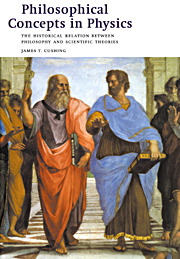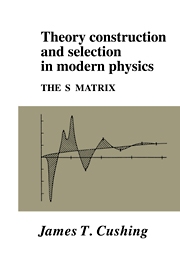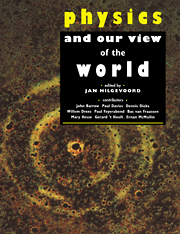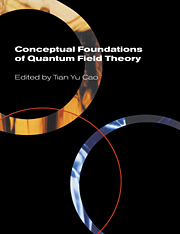Philosophical Concepts in Physics
This book examines a selection of philosophical issues in the context of specific episodes in the development of physical theories. Advances in science are presented against the historical and philosophical backgrounds in which they occurred. A major aim is to impress upon the reader the essential role that philosophical considerations have played in the actual practice of science. The book begins with some necessary introduction to the history of ancient and early modern science, with major emphasis being given to the two great watersheds of twentieth-century physics: relativity and, especially, quantum mechanics. At times the term 'construction' may seem more appropriate than 'discovery' for the way theories have developed and, especially in the later chapters, the question of the influence of historical, philosophical and even social factors on the very form and content of scientific theories is discussed.
- Fascinating graduate-level text on the interface between philosophy and physics
- First-ever attempt to address this subject at textbook level, based on course at Notre Dame University
Reviews & endorsements
'For anyone who really wants to understand physics, this is a splendid and beautifully written book … this book is an excellent introduction to a historically based philosophy of science, with accurate reporting of many examples from physics, and much attention to primary sources. I would recommend it strongly as an adjunct to standard textbooks of physics for students who seek a real understanding of their subject.' Michael Redhead, Physics World
'… I think that Cushing has done an excellent job. If I again teach a course similar to his I will certainly consider using his book as a text …'. Anthony Leggett, The Times Higher Education Supplement
'As a chronological text in the history and philosophy of science for undergraduate students of the physical sciences, this book is unexcelled.' J. Leplin, Endeavour
'Altogether, the book provides a good overview of the basis underlying 3000 years of physical knowledge …'. H Rechenberg, Institute of Physics Publishing
Product details
January 1998Paperback
9780521578233
448 pages
241 × 170 × 28 mm
0.73kg
133 b/w illus. 9 tables
Available
Table of Contents
- Preface
- Part I. The Scientific Enterprise:
- 1. Ways of knowing
- 2. Aristotle and Francis Bacon
- 3. Science and metaphysics
- Part II. Ancient and Modern Models of the Universe:
- 4. Observational astronomy and the Ptolemaic model
- 5. The Copernican model and Kepler's laws
- 6. Galileo on motion
- Part III. The Newtonian Universe:
- 7. Newton's Principia
- 8. Newton's law of universal gravitation
- 9. Some old questions revisited
- Part IV. A Perspective:
- 10. Galileo's Letter to the Grand Duchess
- 11. An overarching Newtonian framework
- 12. A view of the world based on science: determinism
- Part V. Mechanical Versus Electrodynamical World Views:
- 13. Models of the aether
- 14. Maxwell's theory
- 15. The Kaufmann experiments
- Part VI. The Theory of Relativity:
- 16. The background to and essentials of special relativity
- 17. Further logical consequences of Einstein's postulates
- 18. General relativity and the expanding universe
- Part VII. The Quantum World and the Completeness of Quantum Mechanics:
- 19. The road to quantum mechanics
- 20. 'Copenhage' quantum mechanics
- 21. Is quantum mechanics complete?
- Part VIII. Some Philosophical Lessons from Quantum Mechanics:
- 22. The EPR paper and Bell's theorem
- 23. An alternative version of quantum mechanics
- 24. An essential role for historical contingency?
- Part IX. A Retrospective:
- 25. The goals of science and the status of its knowledge
- Notes
- General references
- Bibliography
- Author index
- Subject index.






